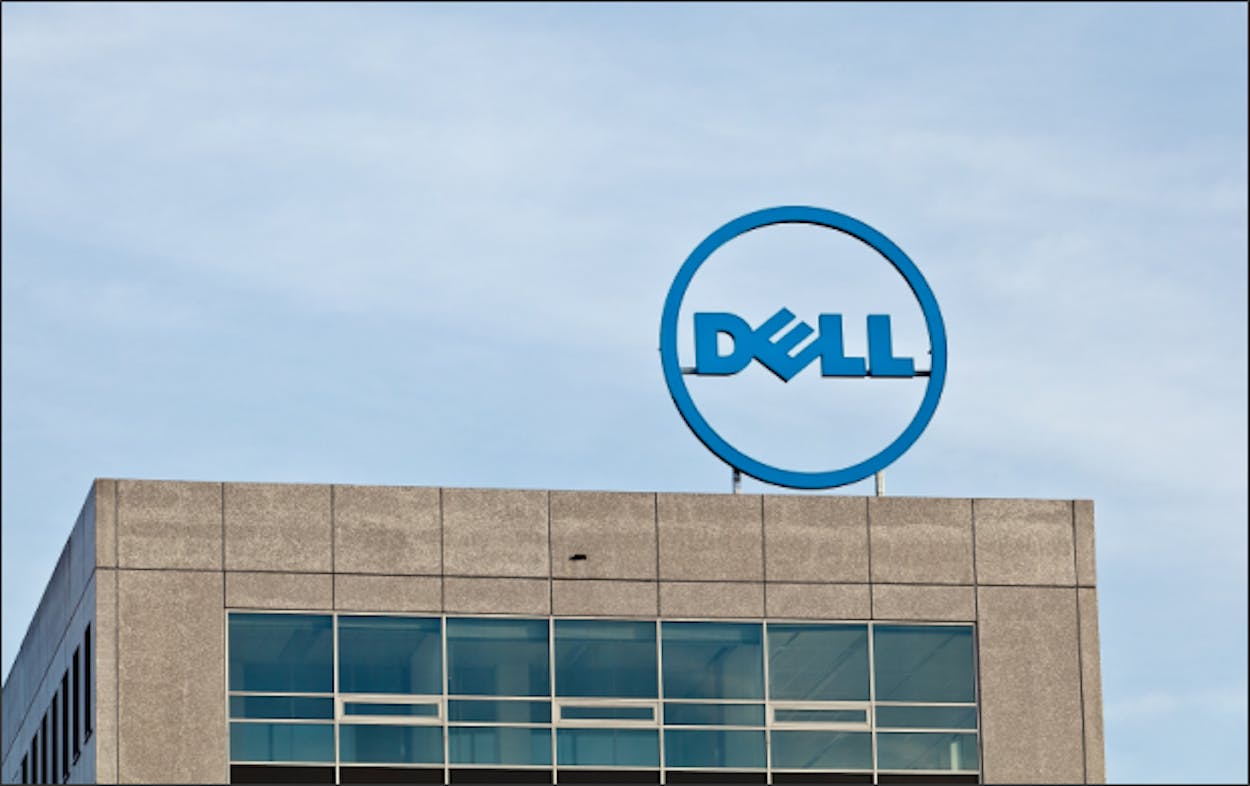The Texas economy is one of the most robust in the world. Wildly profitable companies and ingenious entrepreneurs call this state home, and what happens here influences businesses around the nation. Here’s a slice of the profits, losses, big deals, and backroom decisions happening across Texas this week.
Buy Low, Dell High
After an up-and-down 2012, Dell is starting out 2013 with an eye toward a fresh start. The Wall Street Journal reported this week that CEO Michael Dell is in talks with an investment group to take the company private in a “leveraged buyout at around $13 to $14 a share.” Money for the deal—reportedly worth between $22 billion to $25 billion in equity—would come from Silver Lake Partners, Dell himself, and one or more other investors, according to the Journal.
Going private would give the Round Rock–based computer empire more latitude in “reorienting the company around hardware, software and services for businesses, without having to worry about keeping up quarterly earnings during the process,” the Journal reports.
The Bottom Line: Investors responded favorably to the proposed buyout, driving up Dell’s share price by thirteen percent on Monday.
Should I Stay or Should Citgo?
The State of New Hampshire agreed this week to dismiss Citgo Petroleum Corp. from an environmental lawsuit that has dragged on for nearly a decade. In 2003 New Hampshire accused Houston-based Citgo and several other oil companies of contaminating its groundwater with the gasoline additive MTBE, incurring $816 million in cleanup costs, according to Businessweek.
Based on Citgo’s market share, the state could seek anywhere from $25 million to $71 million in the settlement. The lawsuit also targets Irving-based ExxonMobil, which will remain in court as a defendant after Citgo’s exit.
The Bottom Line: Businessweek reports Citgo will attempt to reach a settlement agreement with the state by Feb. 15, or else it will have to rejoin the suit.
Fascistical Analysis
Whole Foods founder John Mackey made headlines this week after giving an interview with NPR in which he said the Obama administration’s healthcare overhaul is a form of fascism because it requires employers to pay more for employee health coverage. “In fascism, the government doesn’t own the means of production, but they do control it—and that’s what’s happening with our health care programs and these reforms,” Mackey told host Steve Inskeep.
The CEO has been a vocal opponent of the Affordable Care Act since it was first debated in Congress, most notably in a 2009 Wall Street Journal op-ed in which he denounced the reforms and argued that Americans should be “responsible for our own lives and our own health.” He is currently making the rounds to promote his new book, Conscious Capitalism.
The Bottom Line: In a Thursday interview with CBS, Mackey walked back on some of his remarks, calling them “a bad choice of words on my part.” He noted that while the fascism label may not be an accurate characterization of the healthcare policies, “we need a new word for it. I don’t know what the right word is.
Winner of the Week: AT&T
AT&T is taking bold steps in its bid to expand and reposition itself in an evolving mobile market. The Wall Street Journal reported this week that the Dallas communications giant is testing the waters in Europe and considering plans to buy one or more carriers in Germany, the Netherlands, or the U.K.
The Journal describes the idea as a path that could allow AT&T to “escape constraints on growth at home by getting into a new wireless market where it can upgrade technology and roll out more lucrative pricing strategies.” However, transitioning into competitive European markets would be an expensive move, and there are many details yet to be ironed out.
Losers of the Week: ‘Most Hated’ Dallas Companies
A new list by the website 24/7 Wall Street includes five Dallas-area corporations among the 10 Most Hated Companies in America. Plano-based J.C. Penney claimed the top spot after a year of falling stock prices and a failed attempt to shift its retail strategy.
The website ranked Fort Worth-based American Airlines came at number seven because the company, “in a remarkably short period of time, ruined its relationships with shareholders, bondholders, pilots, customers, suppliers and most of its other employees.” Other companies with major operations in north central Texas include Research in Motion (sixth), Nokia (ninth), and Hewlett-Packard (tenth).






